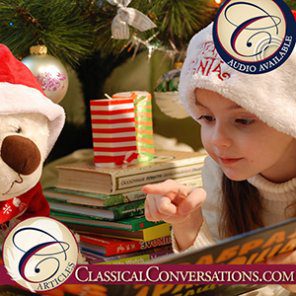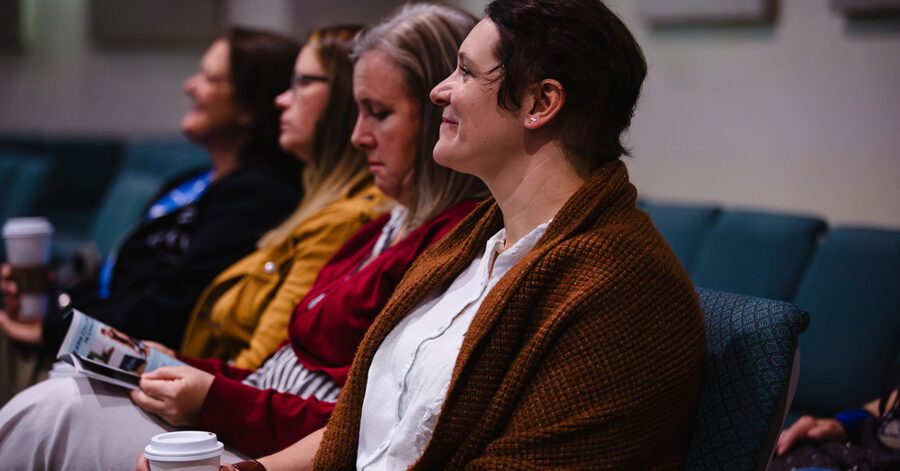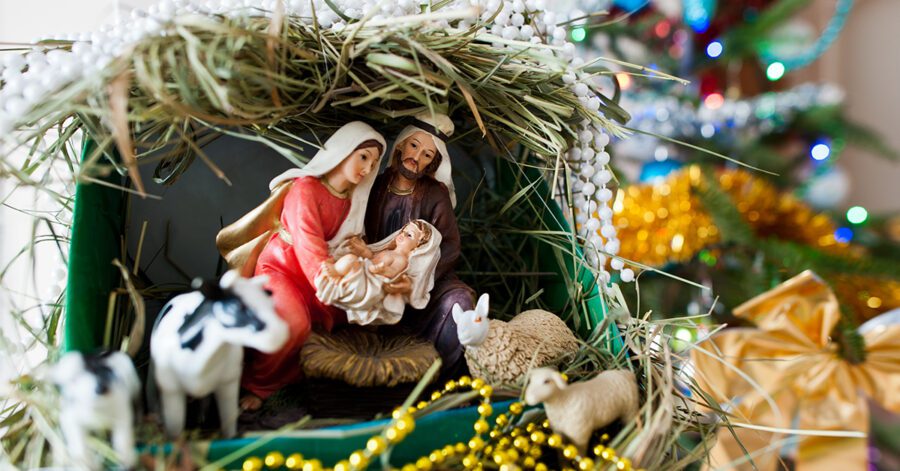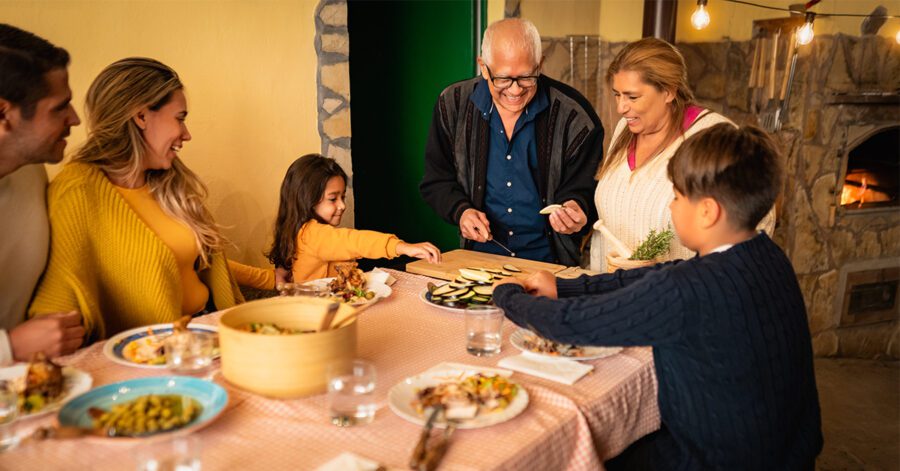Does your Thanksgiving sparkle with music, laughter and wit? Has the food you labored over for hours disappeared in minutes? Has your family learned to linger and enjoy one another’s company?
One year, my extended family celebrated Thanksgiving at a reconstructed French and Indian War fort, where I worked as a volunteer. A fire burned in the stone hearth and we dined on traditional fare by beeswax candlelight. In this gorgeous setting it would be a travesty to gobble and go, but that is what we did! That was a turning point for me. I realized we need to teach our families to feast together, using humor, art, and ceremony.
For the sake of this argument I will assume we all make our homes inviting by subduing the clutter and making surfaces sparkle. To honor our guests we bring out the china instead of the everyday tableware, and use candles, tablecloths and centerpieces to mark this as a festive occasion. Pleasant music without abrupt changes sets a relaxing tone/atmosphere; Mozart, instrumental Celtic, and smooth jazz do well here. I assume the menu has company dishes, though in truth, plain food is perfectly satisfying if the company we keep is delicious.
The first ingredient for a successful celebration is humor. Laughter binds us together and makes precious memories. For a group that does not share the joy of the Lord nor sing comfortably together, this is the best glue. The kind of humor that brings wide smiles, spontaneous cheers, belly laughs and sparkling eyes melts any walls between us. For this to work we absolutely must stay away from any hint of insult or cruelty. Wholesome laughter is consistent with respect. For Thanksgiving this year the activities I planned were meant to delight and relax the group. Only after they had moved out of their comfort zone a little and enjoyed warm laughter in the safety of our affection did I offer the ceremony that brought the reason for the holiday into focus.
In this spirit, employ the arts to draw out friendly laughter. In a perfect world we would be able to entertain one another with skill in music, poetry, or witty words, but not in this age. The arts are an expression of our common experience in this life and have the power to unite us. With some forethought we can involve every guest in entertainment arts which can be performed without special skill. My Thanksgiving guests are not good at making presentations, but are willing to laugh at clever clowning. The day before the party I planned some easy activities which were both within reach and a stretch. They were written on 3 x 5 cards and I prepared ahead of time who would do which. I pinned curtains and a bed sheet to the pine beams overhead to create a stage area, and lit with a torchiere. After the meal I had three teen cousins do an air band of a song they knew; they performed a comic rendition of “Clementine.” Grandpa mouthed a song from the Fifties while his granddaughter sang from behind the curtain. (We found that folk songs and classic oldies crossed the boundaries of age and culture.) Grandma was assigned to interview her grandson, who answered as a person in history. As she asked her yes-or-no questions, the guests hollered out guesses until they nailed it. My accountant sister danced a soft-shoe while we hummed the tune of “Tea for Two,” abbreviated to keep her from straining her dignity.
Include less strenuous activities, too, for the frail in body and spirit. Give an anthology of children’s poetry to a guest who peruses and chooses a selection to read. A book of clean jokes is another resource, and has the benefit of giving young children good material. As cute as they are, in joke-telling they are not funny! I found an old book on my shelves that has a section on “loony laws.” My brother-in-law, who I will never see doing soft-shoe, read some selections and cracked us up. Here would be the perfect time for Foundations children to repeat their poetry presentation, recite the timeline, or sing a history sentence. Challenge students could recite Shakespeare or give a prepared speech. If visiting family is intimidated by such feats, by all means, save these for last. Using music and literature to call forth laughter, delight, and wonder will prepare the heart for more meaningful expressions.
Weave into your event a simple ceremony. This Thanksgiving consider trying this: Put a crystal goblet on a plate and a pitcher of water or wine next to it. One by one, invite your guests to come up and express something for which they are truly thankful. (Folks new to this might evade by being thankful ‘for everything,’ but gently steer them to specifics.) They then pour from the pitcher into the cup. Test this beforehand to choose a glass which will accommodate a splash from each guest and just about fill it. The host goes last and adds his until it overflows. Follow this with a reading of Psalm 23, Psalm 65, or another passage which praises God for His overflowing blessings toward us. Christmas offers a wealth of possibilities to help unbelieving family know exactly what the celebration is for, from carols to lighting the last Advent candle with a reading. Read the Declaration of Independence on the Fourth of July. On St. Patrick’s Day we Hollerans take turns reading a condensed biography of Patrick, who brought the gospel to Ireland.
Many of us find ourselves sharing important holidays with family members who are not engaging with the ideas behind them. We only get one chance to raise our children. How sad if our celebrations go no deeper than food and shop talk! When God gives us the privilege of hosting these events let’s make plans so the holiday is tied to its holy meaning. Through laughter, the arts, and meaningful ceremony we can teach our families to make a true feast of our gatherings. As we warm the hearts of our guests through activities which demonstrate grace, kindness, and respect, God’s words may find a welcome.




